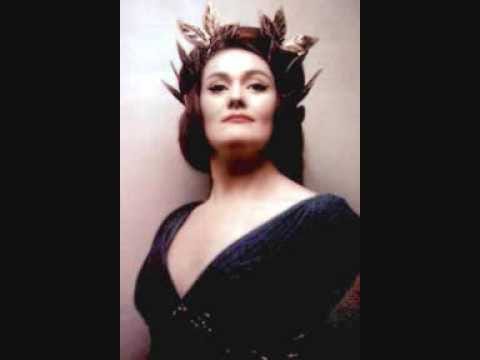Opera Daily 🎶 — Beauty is in the differences
This week's Opera Daily features why opera can be so exciting and engaging
👋 Hello to the new Opera Daily subscribers who have joined us this week. A reminder that you can check out the complete Opera Daily archives and the playlist on YouTube for more selections. If you were forwarded this email by a friend, join us by subscribing here:
In opera, pieces are constantly being reborn.
I was listening to a podcast with Tyler Cowen and the composer John Adams this week. Tyler asked John Adams if he was worried when he composed a piece that it would be nearly impossible for other people to do it as well as, in essence, then he’s doing it in his head. And John Adams said that it’s actually a very exciting thing when you write a score — that you are essentially “making a recipe for something, and it changes with every performance.”
Just as a recipe is a set of instructions for creating a dish, an opera is a set of instructions for creating a musical performance.
But just as different chefs may interpret a recipe differently and put their spin on it, various performers and conductors may interpret an opera differently. While many of the notes on the page remain the same, this can lead to variations in how a piece is performed, resulting in vastly different interpretations of the same work.
This is one of the reasons why opera can be so exciting and engaging — each performance is unique and can offer a different perspective on the work.
On the other hand, pop songs are often expected to be performed in a particular way, with little deviation from the original recording. This can make them feel less dynamic and less open to interpretation.
In opera, differences come with the territory, so we must accept that there will be some not-so-great interpretations along the way.
I had never thought about it that way before and often struggled with anything that veered from my norm.
Today I thought we could listen to “Casta Diva”, a well-known piece from Bellini's opera Norma, and see the differences. And then, you can decide which one(s) you prefer.
(Although while there will be differences in the selections below, I am not going to lie, the ones I've chosen are all pretty incredible!)
🎧 Listen here (8 minute listen): Soprano, Sondra Radvanovsky
🎧 Listen here (8 minute listen): Soprano, Montserrat Caballé
🎧 Listen here (8 minute listen): Soprano, Leontyne Price
🎧 Listen here (8 minute listen): Soprano, Joan Sutherland
🎧 Listen here (8 minute listen): Soprano, Leyla Gencer
🎧 Listen here (8 minute listen): Soprano, Maria Callas
🎧 Listen here (8 minute listen): Soprano, Sonya Yoncheva
Thank you for reading (and listening), and feel free to reply with feedback or leave a comment.
Michele
PS. If you missed last week’s selection, we featured opera's role in shaping and influencing various forms of music and pop culture.
❤️ If you enjoyed this selection, please hit the heart to like it (and share it too!)




This one of the reasons why I love opera and why I own so many recordings of them - directors and performers bring themselves to a work and make it new each time (as opposed to several friends of mine who have "their favorite" recordings and have no desire to hear other recordings). As a sometimes composer myself, I very much appreciate Adams' perspective. There are *many* people who think of music, especially classical musics, as writ in stone (one must abide by the composer's directions, etc.). I am not one of those people. It is both exhilarating and humbling to put a work "out there" and have it performed, especially if one gives it away and explicitly allows interpretive or even modifications of a work. I like the 'recipe' model.
I think non-classical musics are also interpreted by performers. The Great American Songbook is full of works performed by myriad performers who interpret the songs from their own perspectives with their own gifts. Pop, rock, and blues have tunes that are similarly interpreted, especially songs written by the great songwriters (Bob Dylan, Paul Simon, John Lennon & Paul McCartney, Leonard Cohen, Carole King, etc.). Think how many versions of Cohen's Hallelujah you may have heard, or Lennon & McCartney's Blackbird.
While I enjoy listening to opera, the extent of my familiarity is really what I picked up as a kid listening to what my dad listened to many years ago in the era of Callas, Sutherland et al. So I have never heard Sondra Radvanovsky. My goodness, what a joy!! Of them all, she's the one I went back to and replayed and replayed. Thank you, Michele, for this!!